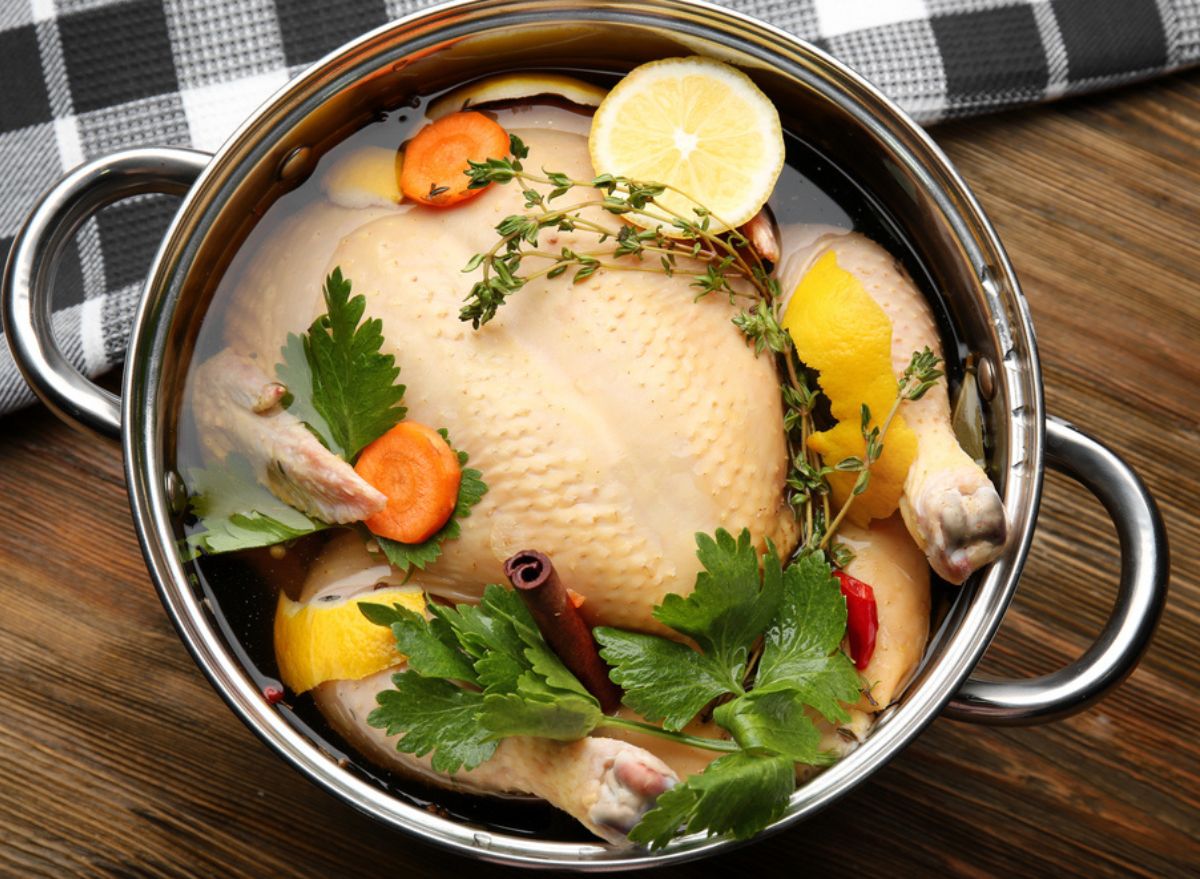courtesy of eatthis.com
The Secret to a Juicy Turkey
Thanksgiving chefs face the daunting task of delivering a perfectly cooked turkey that's both flavorful and moist. The key to avoiding a dry turkey disaster? Brining. This method not only seasons the turkey from within but also helps it retain moisture during the cooking process, ensuring a succulent feast centerpiece.
Brining Basics: Getting Started
For those new to brining or tasked with cooking for a crowd, the process might seem overwhelming. However, with guidance from expert chefs, you can brine your turkey with confidence. The first step is ensuring your turkey is fully thawed—a process that can take several days in the refrigerator, depending on the size of your bird.
Choosing the Right Container
Finding a suitable container is crucial for brining. It must be large enough to submerge the turkey in the brine solution yet small enough to fit in your fridge. Options include a 10-quart pot with tall sides or a brining bag, ensuring the turkey is completely covered during the process.
Creating the Perfect Brine
A basic brine consists of a saltwater solution, but adding aromatic ingredients can significantly enhance the turkey's flavor. A standard brine recipe includes water, kosher salt, sugar, and various seasonings such as citrus fruits, garlic, and herbs. For those looking for a richer flavor profile, a buttermilk brine or a dry brine with your favorite BBQ rub or spices offers delicious alternatives.
Advanced Tips for a Flawless Bird
Consider breaking down the turkey into parts to address the different cooking needs of the breast and leg quarters. Also, be mindful of the salt type used in your brine, as the density of kosher salt and table salt differs, affecting the brining process. Lastly, plan for a brining time of at least 12 hours, though 24-48 hours is ideal for deep flavor penetration without risking spoilage.
Avoid Over-Brining
One common mistake is attempting to brine a turkey that's already been pre-brined. Many store-bought turkeys come injected with a brining solution, so always check the label for terms like "kosher," "basted," or "self-basted" to avoid over-seasoning your bird.
With these expert tips, your Thanksgiving turkey is sure to be a juicy, flavorful success that'll have your guests talking until next year's feast.

courtesy of eatthis.com
*** We cherish our sponsor *** |
| [TAG2]
Image Credit: Ruth Keller / AuthorsUSA.com |
Did you miss our previous article...
https://naturesmart.us/wellness/where-to-find-fresh-neverfrozen-burgers-across-america
 HealthWellnessFitnessBeautyVideosPrivacy PolicyTerms And Conditions
HealthWellnessFitnessBeautyVideosPrivacy PolicyTerms And Conditions
